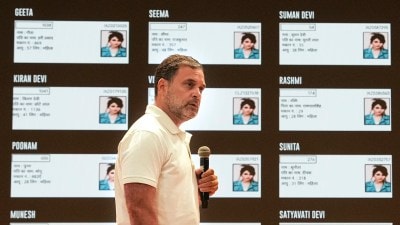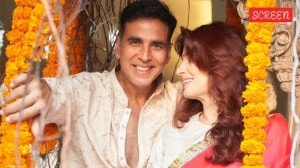New trains — Railway ministry gets threats’ from MPs
NEW DELHI, Feb 13: Mamata Banerjee isn't the only one asking for new trains. With the Railway Budget scheduled in less than two weeks, pr...

NEW DELHI, Feb 13: Mamata Banerjee isn’t the only one asking for new trains. With the Railway Budget scheduled in less than two weeks, pressure has mounted on Union Railways Minister Nitish Kumar. His ministry has already received requests and even veiled threats to start scores of new trains (including 90 super fast ones), include 600 more stops in existing routes and extend an estimated 200 trains. The ministry, on an average, announces about 10 to 12 trains during every budget.
In the last budget, 12 new trains and route extensions of three trains were announced.
When contacted, Nitish Kumar puts up a brave face: “What’s new? There’s always pressure for new trains and projects and it increases before the budget. Demanding a new train does not cost the MPs anything. We cannot fulfill all the demands but do the best we can. It needs the use of human psychology to handle all the MPs with their various demands.”
However, he adds that there was a need for augmenting the carrying capacity. “We can addadditional coaches to existing trains. The basic thing is to increase the line capacity,” he said.
However, the Railways’ Engineering department has put its foot down saying there should be minimal addition to the existing number of trains. Engineers say that most tracks are already congested and over-utilised, with barely any time for maintenance.
Ideally, each track requires a “three to four-hour block” everyday — with no trains running at the time — for maintenance.
Today, staff get just a few minutes for track inspection and maintenance.“This has started showing with increasing number of rail fractures and accidents. These are signs of overloading of the railway system. The Railways are running as many as 160 trains on a track with a capacity for 60 trains. We don’t need new trains but to maintain the existing system,” an official in the engineering department said.
Member (Engineering) V K Agnihotri admitted that maintenance of track was a serious problem. However, insisting that thisshould not be related to the coming budget, he said that the Railways were already running more trains than capacity.
But the elected MPs — eager to please their voters — seem oblivious to the problems. M P Jaiswal, a BJP MP from Bihar — who has given his own list of demands — said that after all he needed to show something to the people of his constituency. He wants a “duplicate Vaisahali,” among other things.
“They threaten to gherao me if I don’t get them a new train. Earlier, when Ram Vilas Paswan was the railway minister, my demand was fulfilled overnight. Now people ask me that it is my government at the Centre, so why the delay,” he said.
Consider this: Each new train costs the railways about Rs 40 crore with the additional running cost of Rs 220-260 per km.
Each two-minute stop adds Rs 10 lakh to the running cost of the train annually, with heavy fuel consumption in acceleration and declaration, and of course the loss of time. A recent study done by the Railways revealed that therewas either none or one passenger boarding the train at most of the new stops granted in recent years.
Delhi-Chennai G T Express, when introduced had 14 stops and took 29 hours. Now, it has 41 stops and takes 35 hours. The situation is the same for most express trains which are supposed to be faster. Trains which started with 1-20 stops now have as many as 100-110.
Moreover, the official added, the track capacity was already saturated. In the past 50 years, the track length had increased only by 30 per cent whereas the freight service had increased by 600 per cent and passenger service by 500 per cent. “Where is the scope and money for new trains?” he questioned.



- 01
- 02
- 03
- 04
- 05




























